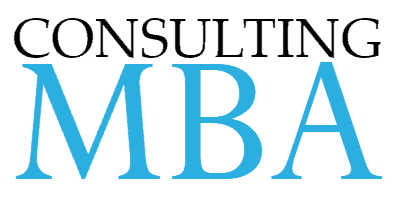Summary
If a client asks about a guarantee, you need to be ready with the right answer.
Transcript
Hey, David Bradley here. And today’s topic is going to be about offering guarantees to your clients. So why don’t I talk about this? Because it’s a trap that people often get caught into and it can have real legal implications as well. So it isn’t just about the client relationship, but it’s about the liability that you might carry with making a guarantee. So, first and foremost, I would never offer a straight guarantee in terms of performance. Any guarantee of results has too much risk to it because there were too many variables at play. In order for marketing to be successful, there needs to be a good product. And as a consultant, you probably don’t have too much influence on what that product looks like. There needs to be a good sales system in place. There needs to be a proper sales process, scripts, teams, everything in order.
And you know, there’s too many different factors at play for you to say that you have complete results, complete control over the results. And you know, aside from that, I think that any time that a client brings up a performance guarantee, it tends to be a red flag. And that isn’t absolute to say that everyone that brings up guaranteed results is requesting a guarantee or asking about it in some fashion. Does it mean that everyone that does that is someone to avoid, but it’s just something to be mindful of. You might be able to connect the dots if there’s other situations or there’s other comments that they make that raise red flags as well. Well, it might be best to avoid the situation or just be extra careful and protect yourself in that process. There is one caveat where I will offer a guarantee on projects if there is a concern or just for the extra assurance to the client and the timeline itself.
So I would say something along the lines of the guarantee is that we will complete the project within the specified timeframe as spelled out in this document. And if we exceed that timeframe, we will complete it without any additional, no additional fees. So the client doesn’t have to worry about if this takes time too long, am I going to have to pay more? Now you need some good controls on that to make sure that you can get the job done, but you should be doing that anyhow, to provide a good service. And second to that you also should have a second shouldn’t in the document contract proposal, where you explained that there’s mutual accountabilities at play and that if there is a time over on or whatever the situation might be, where you don’t hit the project on goal of where it should be complete.
If the blame of that is carried over to the client, because they don’t respond to you timely it needs to just be spelled out in advance so that everyone is on the same page as far as that goes. So if you guarantee you can do that, time-bound guarantee we’re going to get it done on time. And if we don’t, we’ll continue to work for free. And then second to that as well. There’s neutral accountabilities. So if there’s anything new that happens on the project, I’ll keep you updated. Likewise. If I need to be updated, if anything, I expect you to do the same. And likewise, we’re going to also respond to each other in a timely manner. And that is what is assumed as part of this proposal. So if anything changes, then the timelines may change as well. Every reasonable client that I’ve ever worked with will agree to that happily and understand.
So, that’d be my recommendation. I wouldn’t say to flat out offer a guarantee, especially just something performance-based, but there’s some opportunity there for you to know, offer a guarantee, offer some extra assurance, offer that you are playing ball with them if they bring it up, but something that is safe enough for you as well.
Also from Consulting MBA
Leasing Office Space vs. Work-From-Home as a Marketing Consultant
Where you work each day is an important decision. It’s a matter of dollars invested, productivity, professionalism, perception and positioning. It’s a highly personal decision.
How To Become A Marketing Coach
Coaching is a growing field in the world of marketing — and marketers are oblivious. Organizations go through cycles of taking marketing in-house, or outsourcing to agencies. But regardless of where the cycle is, they always invest in their internal teams. Coaching is an excellent way to transfer knowledge from yourself, the coach, to the client’s marketer(s).
Shifting Your Mindset In Marketing Services
There are three things to consider in the marketing services business to be successful. This goes to marketing consultants and agencies alike. These are *building blocks* for your business — the essential elements you need for your business and for yourself to approach your day-to-day and the big picture.




